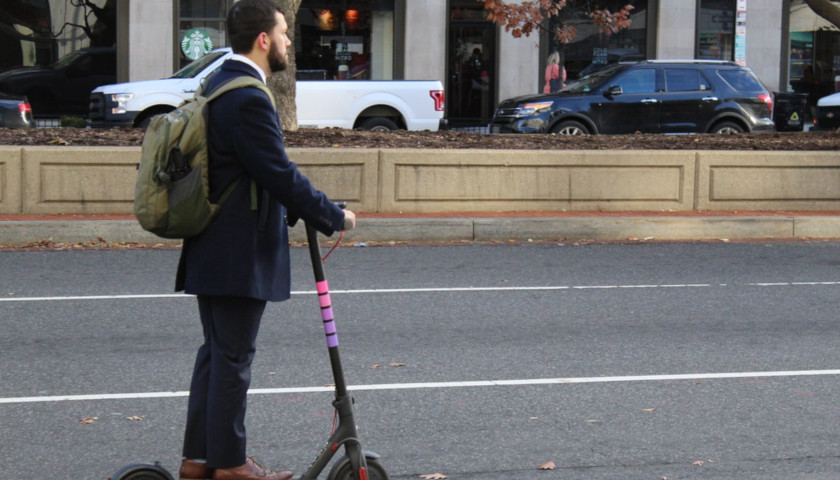COLUMBUS, Ohio – Ohio Governor Mike DeWine (R) signed two bills on Tuesday – one establishing requirements for low-speed electronic scooters, the second modifying employment laws.
House Bill 295, sponsored by Representative Jim Hoops (R-Napoleon), passed the House 78-4 and the Senate 32-0. HB295 defines a low-speed electric scooter and details where it may be operated – public streets, highways, sidewalks, shared-use paths and bicycle paths.
Scooter operators must also yield to pedestrians, signal when passing pedestrians, be equipped with both a red rear reflector and a front lamp when riding at night and limit speed to 20 miles per hour.
Local governments, metro parks, park districts and the Ohio Department of Natural Resources may, with the approval of the Director of natural resources: regulate or prohibit the use of electric scooters, include electric scooters in a device sharing program, and require scooters in the device sharing program to carry $1 million of liability insurance per incident, $2 million in aggregate coverage.
House Bill 352, sponsored by Representative Jon Cross (R-Kenton) and former Representative – now Ohio State Senator – George Lang (R-District 4), passed the House 57-28 and the Senate 30-1. HB352 simplifies workplace laws.
The bill requires civil lawsuits resulting from unlawful employer discrimination to be acted on within two years – previously the law allowed six.
However, a workforce discrimination complaint must be filed with Ohio Civil Rights Commission (OCRC) in order for a civil lawsuit to be considered by a court. A person may file a civil lawsuit at the same time a complaint is filed with the OCRC but a civil lawsuit cannot start until either the OCRC issues a right-to-sue notice or more than 45 days has passed since the person filed the OCRC complaint.
HB352 protects supervisors and managers from liability when sound judgement is used – exceptions being acts outside sound scope of work that are retaliatory or discriminatory.
Employers are protected from sexual harassment claims under the new law if the employer had an effective harassment policy, properly educated employees about policies and handling complaints, was prompt to correct the behavior, and the employee failed to take corrective or preventative opportunities.
HB352 treats age discrimination the same way it treats other protected classes – requiring OCRC to be included in the complaint process and lowering the statute of limitations to two years.
_ _ _
Jack Windsor is Managing Editor at The Ohio Star. Windsor is also an independent investigative reporter. Follow Jack on Twitter. Email tips or book Jack to speak at your event at [email protected].
Photo “Lyft Scooter” by Elvert Barnes. CC BY-SA 2.0.





